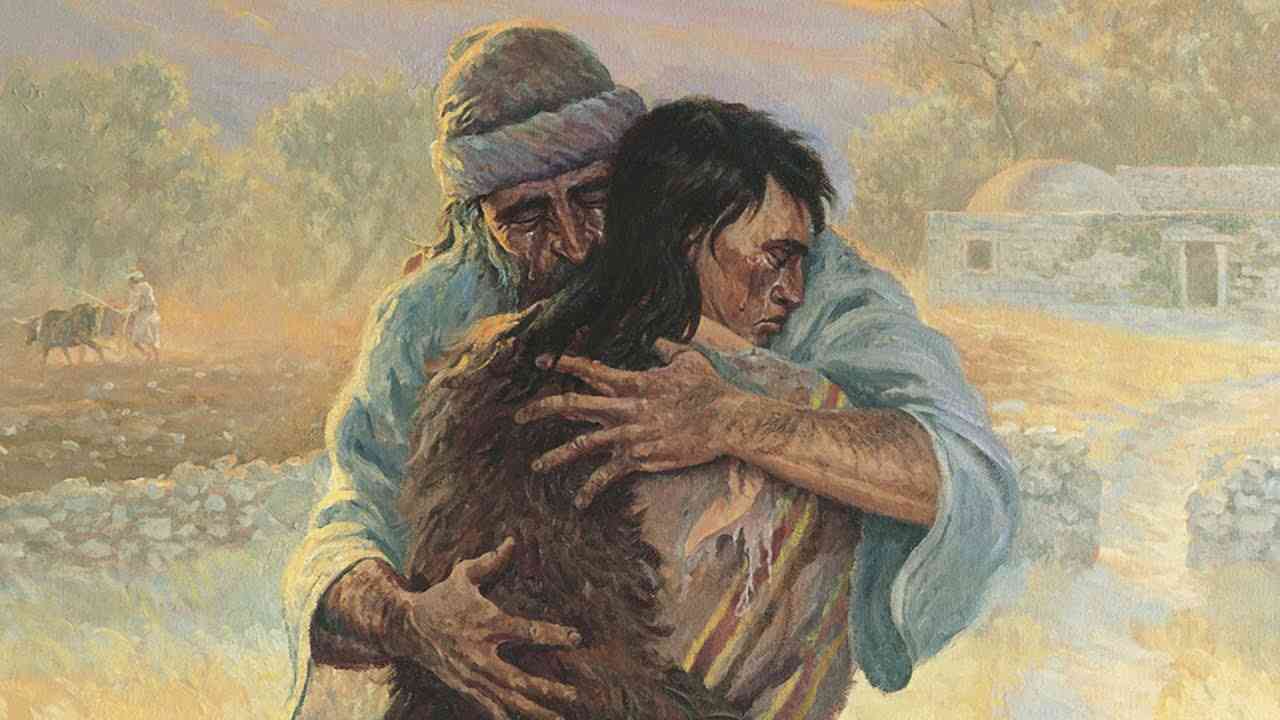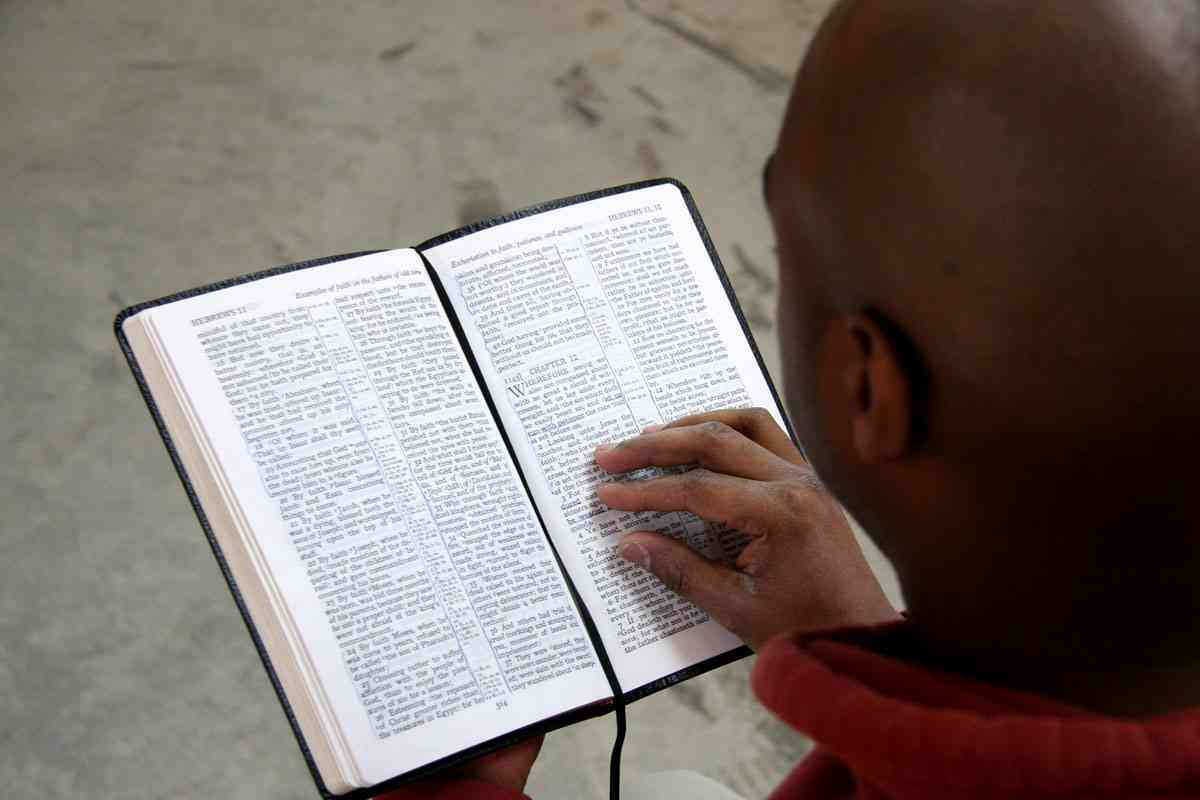
In the rich tapestry of biblical narratives, the recurring theme of second chances stands as a testament to the boundless mercy and grace of our Creator. The sacred pages reveal stories of redemption, transformation, and forgiveness that resonate across generations. As we navigate the complexities of our own lives, let us embark on a journey through the scriptures, exploring the profound message of second chances.
The prodigal son (Luke 15:11-32):
Our exploration begins with the parable of the Prodigal Son, a poignant narrative of a wayward son’s return to his father’s embrace. In the Gospel of Luke, we witness the transformative power of repentance and the unyielding love of a compassionate father. The prodigal son’s journey mirrors our own earthly wanderings, reminding us that no matter how far we may stray, our Heavenly Father awaits our return with open arms.
Peter’s denial and restoration (Matthew 26:69-75; John 21:15-19):
Our biblical exploration extends to the New Testament, where we encounter the compelling narrative of Peter’s denial and subsequent restoration. As Jesus predicted, Peter disowned Him three times during the events leading to the crucifixion. Despite this betrayal, the risen Christ sought out Peter on the shores of the Sea of Galilee. In the exchange recorded in John 21, Jesus posed a crucial question to Peter: “Do you love me?” Three times, Peter affirmed his love, aligning with his earlier denials. Each affirmation, met with Jesus’ charge to care for His flock, marked a profound moment of reconciliation and restoration. Peter’s journey illustrates the transformative power of forgiveness, showing us that in Christ, our shortcomings can be transformed into opportunities for service and redemption.
Paul’s transformation (Acts 9:1-22):
The tapestry of second chances is woven with threads of unexpected transformations, none more striking than the conversion of Saul to Paul. In Acts 9, we encounter Saul, a zealous persecutor of early Christians, breathing threats and violence against the followers of Jesus. However, on the road to Damascus, Saul experienced a radical encounter with the risen Christ. Blinded by a heavenly light, he heard the voice of Jesus, asking, “Saul, Saul, why are you persecuting me?” This encounter marked the beginning of a profound transformation. Saul, who once sought to destroy the Christian faith, became its most ardent advocate. Through divine intervention, Saul became Paul, the Apostle to the Gentiles. His life stands as a testament to the boundless grace that can turn adversaries into ambassadors, illustrating that no one is beyond the reach of God’s transformative power.
Rahab’s redemption (Joshua 2):
- Ordinary citizens or foreign capital? July Moyo must choose
- Grace tidings: Relax it is a done deal
- Grace tidings: Relax it is a done deal
- Unpacking Christ; our wisdom (2)
Keep Reading
Our biblical journey takes us to the book of Joshua, where we encounter an unexpected heroine in the person of Rahab. In Joshua 2, as the Israelites prepared to enter the Promised Land, Joshua sent two spies to Jericho. Rahab, a harlot, courageously hid the spies and provided them with crucial information. In return for her assistance, the spies pledged to spare Rahab and her family when the city fell. Rahab’s story is a remarkable testament to God’s ability to use unconventional individuals for His divine purposes. Despite her past, Rahab’s act of faith secured her a place in the lineage of Jesus (Matthew 1:5), underscoring God’s redemptive power and His willingness to extend grace to all who turn to Him.
Jonah’s second chance (Jonah 3):
The prophetic narrative of Jonah unfolds in a tale of divine persistence and human reluctance. Initially, Jonah resisted God’s call to deliver a message of repentance to the city of Nineveh. Fleeing in the opposite direction, Jonah found himself in the belly of a great fish. However, even in his disobedience, God granted Jonah a second chance. After being vomited onto dry land, Jonah heeded God’s call and proclaimed the impending judgment on Nineveh. To Jonah’s surprise, the people of Nineveh responded with genuine repentance, and God, true to His merciful nature, spared the city. Jonah’s story reminds us that God’s compassion extends beyond our expectations and that He graciously offers second chances, even to those initially resistant to His divine call.
In the rich tapestry of these biblical narratives — the Prodigal Son’s return, Peter’s restoration, Paul’s transformation, Rahab’s redemption, and Jonah’s second chance — we witness a divine narrative that echoes throughout the ages. These stories converge to form a resounding melody of second chances, where grace triumphs over human frailty. As we navigate the complexities of our own lives, let these narratives inspire us to embrace the hope embedded in the scriptures, understanding that our Heavenly Father is a God of second chances, inviting us to experience His transformative and redemptive love.
David’s repentance
(2 Samuel 11-12):
Another profound example of second chances is found in the story of King David. In 2 Samuel 11, we learn of David’s moral failure as he succumbs to temptation with Bathsheba and orchestrates the death of her husband, Uriah. The gravity of David’s actions is laid bare, yet when confronted by the prophet Nathan in 2 Samuel 12, David doesn’t deflect blame but instead acknowledges his sin. In Psalm 51, David pours out a heartfelt prayer of repentance, seeking God’s mercy and cleansing. Despite David’s grievous transgressions, God granted him a second chance, allowing him to continue his role as a man after God’s own heart. David’s story emphasises God’s willingness to forgive the truly repentant heart and demonstrates the transformative power of genuine contrition.
The woman caught in adultery
(John 8:1-11):
In the Gospel of John, we encounter a poignant account of a woman caught in the act of adultery. The religious leaders brought her before Jesus, intending to trap Him with the law’s demand for stoning. Instead, Jesus responded with a challenge: “Let any one of you who is without sin be the first to throw a stone at her.” As the accusers dispersed, Jesus extended compassion to the woman, saying, “Go now and leave your life of sin.” This encounter exemplifies Christ’s mercy and the opportunity for a second chance. The woman, faced with the possibility of condemnation, experienced the transformative grace of Jesus, illustrating that in Christ, there is freedom from the bondage of sin.
The thief on the cross
(Luke 23:39-43):
As we explore the theme of second chances, we encounter an extraordinary example during the crucifixion of Jesus. In Luke 23, two criminals were crucified alongside Jesus. One of them hurled insults, but the other rebuked him, saying, “We are punished justly, for we are getting what our deeds deserve. But this man has done nothing wrong.” Turning to Jesus, he pleaded, “Jesus, remember me when you come into your kingdom.” In response, Jesus uttered words of remarkable grace: “Truly I tell you, today you will be with me in paradise.” This encounter exemplifies the instantaneous and transformative nature of God’s mercy, showcasing that even in life’s final moments, a sincere plea for grace receives a second chance.
The Samaritan woman at the well
(John 4:1-42):
In John 4, we encounter a Samaritan woman drawing water at a well. Jesus, breaking societal norms, engaged her in conversation, revealing her broken past. Despite her questionable history, Jesus offered her living water, a metaphor for eternal life. This encounter led to the woman’s transformation, as she became a witness and evangelist in her community. The Samaritan woman’s story echoes the theme of second chances, highlighting that no one is beyond the reach of God’s redemptive love, and even the marginalised can experience a renewed purpose through Christ.
In conclusion the biblical tapestry is adorned with stories of individuals who, despite their flaws and failures, experienced the profound grace of second chances. From the prodigal son’s return to David’s repentance and the Woman caught in adultery’s redemption, these narratives converge to form a resounding theme of God’s unfailing love and willingness to grant us new beginnings. As we reflect on these stories, may we find solace in the knowledge that, in Christ, we are recipients of boundless grace, ever-invited to embrace the transformative power of second chances.
*Prosper Tingini is the Scribe of the Children of God Missionary Assembly-God’s Messenger .
Mobile & WhatsApp — 0771260195. Email address: ptingini@gmail.com










